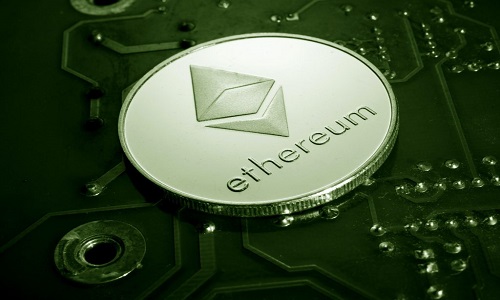Last updated on July 11th, 2023 at 11:03 pm
Many blockchain-based platforms may exist, but Ethereum is one of the largest with thousands of decentralized apps being hosted on it. It is a blockchain ecosystem that has Ether-ETH- as its utility token while possessing Solidity as its programming language.
Transactions carried out within the ecosystem are verified and recorded by the blockchain network. Ethereum allows developers to seamlessly create decentralized apps for different purposes within the ecosystem, and even monetize them. The ERC20 tokens and other varieties of ERC tokens work within the Ethereum blockchain while allowing developers to create custom tokens to back their decentralized app.
Can Developers Easily Use Ethereum?
A smart contract is a crucial technology in Ethereum that allows developers to create innovative decentralized platforms on Ethereum. These dApps can easily be used without the users worrying about custodial risks, fraud, or even the issues linked to downtime.
As a programmable blockchain, people can access the games, financial platforms, marketplaces, and much more that are designed by Solidity developers. The presence of smart contracts in the Ethereum chain has opened it up to a lot of use cases. Cases of people reaching an agreement and using smart contracts to ensure that the terms of the agreement are fulfilled exist. All these are done without the fear of censorship creeping into the equation.
Who Founded Ethereum?
Ethereum was birthed in July 2015 by Vitalik Buterin and Joe Lubin. Joe Lubin is also the founder of ConsenSys, a blockchain application developer that uses the Ethereum network. Vitalik Buterin is said to be the originator of the underlying concept backing Ethereum blockchain, and he is currently the face and CEO of the company. At the moment, he is ranked as one of the youngest crypto billionaires in existence.

Initially, Ether was created to act as the utility token of the Ethereum network, but that has changed because it is one of the most accepted means of crypto payment in the world. The likes of Shopify, and Overstock accept Ether.
How Is Ethereum Different From Bitcoin?
Bitcoin blockchain was designed solely to host its crypto- Bitcoin, but that can’t be said for Ethereum. Buterin created Ethereum to be a marketplace that hosted different decentralized apps with varying functionalities. This means that Ethereum has a wider use case than its counterpart, Bitcoin.
How Does Ethereum Work?
Ethereum blockchain comprises nodes, which communicate with one another to verify and record transactions. Once a node wants to add a transaction, it has to communicate to its peers, and the cycle continues. Miners, which are also nodes, have a record of new transactions and create new blocks with these transactions. Immediately a node accesses a block, it verifies the block and every transaction in it. Once it realizes that the block is valid, it adds the block to the blockchain and ensures that the transactions within the block are executed.
Every transaction that is carried out within the Ethereum blockchain has to pay gas fees, meaning that before a user can utilize the incredible functionalities in a decentralized app hosted on the Ethereum blockchain, gas or transaction fees have to be paid. The gas fees paid within a period are based on some criteria, which change from time to time. As the Ethereum ecosystem grows, the gas fees tend to increase because of the amount of computational power that is consumed.
Ethereum Use Cases
ERC-20 Tokens
The ERC-20 (Ethereum Request for Comments 20) Token Standard permits developers to create fungible tokens within the ecosystem. ERC20 was proposed by Fabian Vogelsteller, and it was designed to carry out incredible features like transfer tokens, reach the right token balance, and do much more.
It is common to see innovative dApps launching their utility tokens as ERC-20 tokens, while their users trade them in crypto exchanges. Before a user can send an ERC-20 token, a transaction fee in Ether must be paid.
Non-fungible Tokens (NFTs)
This is another use case of Ethereum, as it allows users to create non-fungible tokens, NFTs. NFTs are unique tokens that represent peculiar items like digital art, collectibles, sports collectibles, gaming collectibles, and much more. The NFT realm has expanded with celebrities, public figures, and even brands creating NFTs to represent unique items. Snoop Dogg has released NFT collections that are linked to his memories and lifestyle.
Recently, an NFT art by Beeple was sold by Christie’s for $69.3 million. Some artists like Joseph Wooten and the King of Leon are releasing their musical albums through NFTs.
Decentralized finance
One of the most important use cases of Ethereum is the decentralized finance realm. Decentralized finance solutions are altering the way things are done in the traditional world by offering innovative functionalities.
Many decentralized finance platforms offer traditional financial instruments while sprinkling decentralization into the mix. These protocols tend to function outside the rigid custodial feature of centralized traditional financial institutions. These apps work via a Web3-enabled browser extension like MetaMask that permits users to easily interact with the Ethereum chain via a website or a mobile app.
At the moment, these decentralized finance protocols can offer complex financial transactions like lending, liquidity farming, borrowing, parametric insurance, decentralized credit system, and much more. Every decentralized finance transaction, no matter how complex it is, can be done from the comfort of one’s home, and in some cases, without even ID verification.
Wrapping is an innovative process in decentralized finance- DeFi- realm, which allows some DeFi protocols to create a synthetic version of different real-world assets like oil and gold. These wrapped varieties can then be traded.
In Conclusion…
- As a result of the high gas fees, scalability problems, and other issues, Ethereum will be migrated to a newer and better version called ETH 2.0 in the near future.
If you enjoyed reading this, follow DeFi Planet on Twitter and LinkedIn.





















